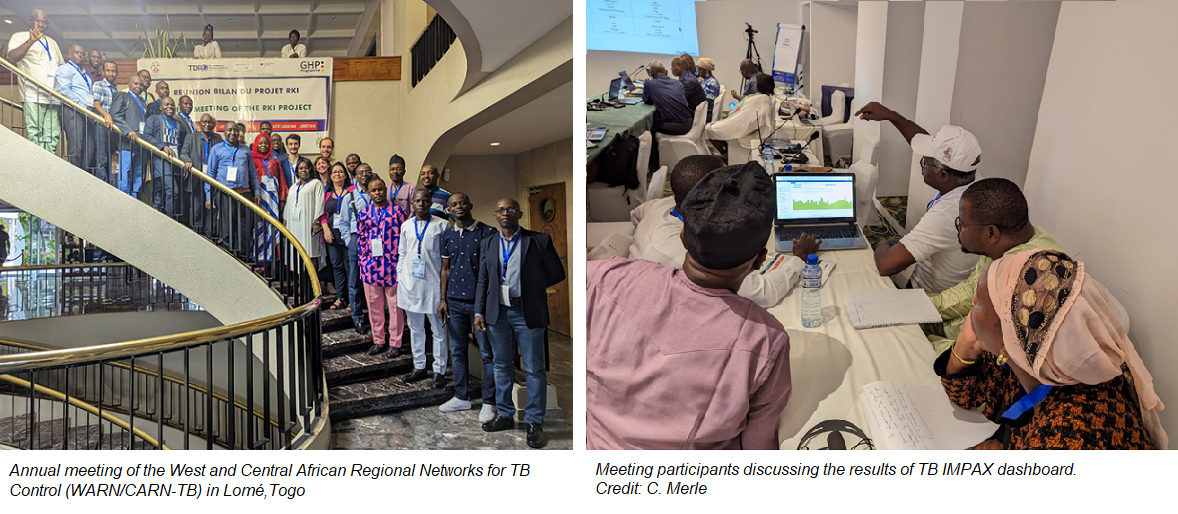The COVID-19 pandemic created many barriers to tuberculosis (TB) treatment and care. As a result, TDR and partners launched a project to help mitigate the impact of COVID-19 and future public health emergencies on the provision of TB services in West and Central Africa. An impact assessment dashboard has been produced and piloted in five countries.
This important new tool will allow us to assess the impact of health emergencies on TB services and develop response plans.Professor Dissou Affolabi, NTP manager in Benin; Executive Secretary of WARN/CARN-TB
The effects of the COVID-19 pandemic on TB treatment and care highlighted the need to ensure ongoing services for TB patients at a time when contact between patients and providers was reduced. This was due to disrupted TB services, social distancing or lockdown measures and TB staff called to work on COVID-19.
This project aims to strengthen TB surveillance systems to detect and track health service disruptions in the context of public health emergencies and support national TB programmes (NTPs) to develop preparedness and response plans..
Key outputs of the project include:
- an impact assessment framework that can be used to monitor the performance of essential TB services during public health emergencies;
- a comprehensive DHIS2package called TB-IMPAX that digitizes the impact assessment framework indicators and integrates them into a digital TB surveillance system; and
- evidence-informed and data-driven country preparedness plans, which are built into enhanced TB surveillance systems and describe strategies to be taken when disruptions are observed
The impact assessment DHIS2 dashboard has been finalized by the University of Oslo and piloted by the NTPs of Benin, Burkina Faso, Chad, Guinea and Rwanda.

Example of TB-IMPAX DHIS2 dashboard
“In times of crisis, it’s important that we get an accurate picture of how service systems are functioning to identify areas where additional support or mitigation strategies are needed, so that the community’s access to TB testing, diagnosis and treatment services are maintained,” says Dr Basel Karo, Coordinator at the Information Centre for International Health Protection at the Robert Koch Institute, a WHO Collaborating Centre for Global Outbreak Alert and Response.
For this project, TDR is working in partnership with the WHO Global TB Programme, the Robert Koch Institute, the West and Central African Regional Networks for TB Control (WARN/CARN-TB) and the Health Information Systems Programme (HISP) at the University of Oslo.
Lessons learned throughout the project were discussed with NTP staff during a two-day meeting in Lomé,Togo, and shared with the NTP coordinators from all 27 countries participating in the annual meeting of the WARN/CARN-TB networks.

This new TB surveillance module will be implemented in additional countries in 2023.
For more information, please contact Dr Corinne Merle or Dr Vanessa Veronese.

